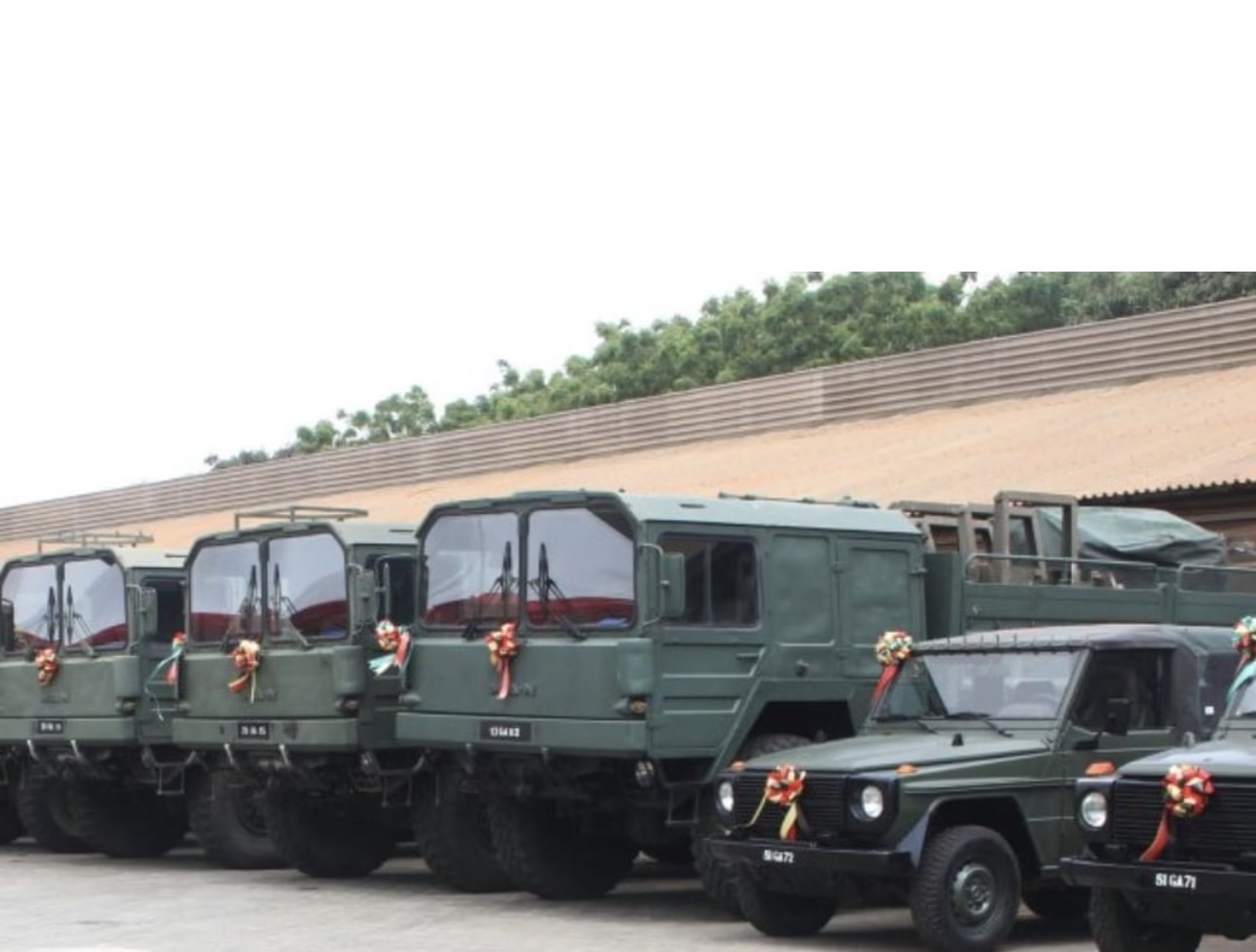Former Top Military Officers “Fingered” In A $10.5M Rusty Armoured Vehicle Deal

A confidential report detailing large-scale corruption and negligence in the Ghana Armed Forces’ (GAF) procurement of obsolete Soviet-era Armoured Personnel Carriers (APCs) has been submitted to President John Dramani Mahama.
The findings, according to military insiders, raise serious concerns about criminal misconduct by top-ranking officers and politically connected contractors involved in the US$10.5 million deal.
The report, led by Brigadier General Ziblim Bawa Ayorogoh, a seasoned Military Police Officer and former Commissioner of CEPS, investigated the controversial acquisition of 20 BTR-70 armoured vehicles from Azerbaijan. The vehicles, originally manufactured over five decades ago, were found to be “unserviceable” and unfit for deployment. Investigators discovered that the APCs were purchased from a military junkyard and had been left to rust for years before being sold to Ghana.
Sources within the military described the BTR-70s as “dangerously obsolete.” Their transmissions had failed, weapons systems malfunctioned, and many of the vehicles were riddled with rust and gaping holes. “These were not armoured vehicles; they were scrap metal,” one senior officer reportedly told investigators.
In an attempt to conceal their condition, the vehicles were reportedly transported to the Base Workshop at Burma Camp in Accra, where they were repainted in UN peacekeeping colours. Despite their questionable state, then-President Nana Akufo-Addo commissioned the vehicles before the Ghana Armed Forces Acceptance Board had inspected or approved them for operational use.
The report implicates several senior officers, including two former Chiefs of Defence Staff — Vice Admiral Seth Amoama and General Thomas Oppong Peprah — both of whom were interviewed by investigators. Also named were Major General Nicholas Peter Andoh, Major General Richard Djani, and Brigadier General K. K. Kumi, the Director-General of Logistics at Army Headquarters.
A central figure in the scandal is an Accra-based businessman, Alhaji Tafiq, who reportedly supplied the vehicles using multiple companies, including Akanni Logistics and Ramelsco Company Ltd. Investigators found that Tafiq had changed company names and directors to secure various military procurement contracts. Military insiders allege that General Oppong Peprah personally inspected the rusted vehicles in Azerbaijan before approving the purchase.
The investigation was prompted by a petition filed by Ola Durojaiye, also known as Kwame Danquah, following a series of investigative publications by The Herald. Brigadier General Ayorogoh’s team interrogated all officers linked to the deal, including personnel from the Base Workshop, the Armoured Brigade Headquarters and suppliers connected to the procurement.
The report implicates several senior officers, including two former Chiefs of Defence Staff — Vice Admiral Seth Amoama and General Thomas Oppong Peprah — both of whom were interviewed by investigators. Also named were Major General Nicholas Peter Andoh, Major General Richard Djani, and Brigadier General K. K. Kumi, the Director-General of Logistics at Army Headquarters.
A central figure in the scandal is an Accra-based businessman, Alhaji Tafiq, who reportedly supplied the vehicles using multiple companies, including Akanni Logistics and Ramelsco Company Ltd. Investigators found that Tafiq had changed company names and directors to secure various military procurement contracts. Military insiders allege that General Oppong Peprah personally inspected the rusted vehicles in Azerbaijan before approving the purchase.
The investigation was prompted by a petition filed by Ola Durojaiye, also known as Kwame Danquah, following a series of investigative publications by The Herald. Brigadier General Ayorogoh’s team interrogated all officers linked to the deal, including personnel from the Base Workshop, the Armoured Brigade Headquarters, and suppliers connected to the procurement
and suppliers connected to the procurement.
The report also sheds light on the deployment of some of the defective APCs to Sudan for UN peacekeeping operations. UN officials reportedly rejected the vehicles, describing them as “unsafe for field deployment.” As a result, the Ghana Armed Forces were denied reimbursement for their use on the mission.
The procurement also appears to have extended beyond the armoured vehicles. Investigators revealed that Alhaji Tafiq’s company was behind the supply of five bulletproof Toyota Land Cruisers in 2024, purchased as “retirement packages” for senior military officers. Though Ramelsco Company Ltd originally won the bid for US$1.3 million, the contract was later shifted to Akanni Logistics, which supplied the vehicles at US$1.425 million — an inflated price of US$125,000 per vehicle.
According to the report, General Oppong Peprah allegedly received a black 2023 Lexus LX 600 (chassis number JTJPB7CX2P4023225) as a kickback from Tafiq’s firm following the transaction.
Brigadier General Ayorogoh, now Deputy Commandant of the Kofi Annan International Peacekeeping Training Centre, concluded the investigation after interviewing all relevant personnel. He submitted the summary to the Chief of Defence Staff, Lieutenant General William Agyapong, who reviewed and forwarded it to the Commander-in-Chief, President Mahama.
President Mahama is expected to review the findings with his advisory team before deciding whether to set up a full Military Board of Inquiry or refer the case to the Economic and Organised Crime Office (EOCO), the National Intelligence Bureau (NIB), or the Police Criminal Investigations Department (CID) for prosecution.
The scandal has reignited public debate over accountability and corruption within Ghana’s security sector. Critics argue that the deal not only wasted public funds but also endangered troops who might have been deployed in unsafe vehicles. The case underscores longstanding concerns about procurement irregularities and the lack of transparency in the country’s defence acquisitions.
Military sources say President Mahama’s decision could determine whether those implicated face disciplinary action or criminal prosecution, as the report details “overwhelming evidence” of financial mismanagement and deliberate attempts to deceive the state.
The President is expected to announce his decision in the coming weeks.

